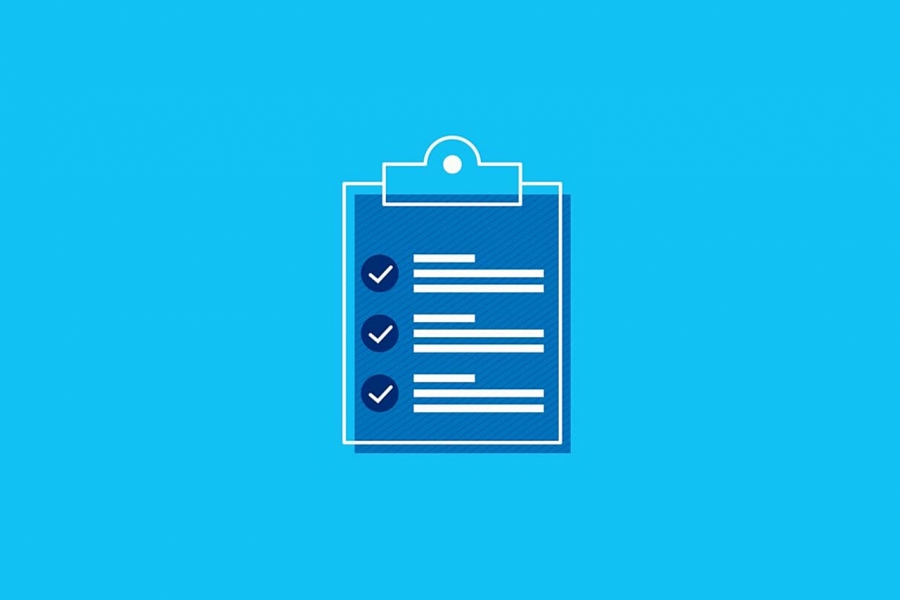 Http iframes are not shown in https pages in many major browsers. Please read this post for details.
Http iframes are not shown in https pages in many major browsers. Please read this post for details.
Troubleshooting Plumbing Issues
Ed Powers Real Estate October 2021 Newsletter
For the latest Newsletter Click here
5 Things You Need to Know About Your Paycheck Stub

When lenders verify and validate information included in your mortgage loan application, with all due respect, they don’t simply take your word for it. While you may enter your monthly income on the application, they will use that amount initially to preapprove you but will eventually contact your employer directly to verify what you make each month. Part of that process also asks you to provide them with copies of your most recent paycheck stubs covering a 30 day period. In this way, lenders verify your monthly income used for a final approval. But your monthly income is only part of the validation process.
The first of course is to look at the monthly gross pay for each month. If you get paid on the 1st and 15th, lenders add those amounts together for use in qualifying. Note, this is the gross or ‘before withholding’ amount. If you get paid every other week, CONTINUED >>>
What To Do When An Appraisal Comes in Low
When someone is buying a home and they’re going to use financing in the form of a mortgage, they need an appraisal to cement the deal. Before a bank is going to extend credit, they want to make sure they’re not giving someone a loan that’s more than the fair market value of the house.
That’s where an appraiser will enter the scene. An appraiser will give their unbiased opinion on the value of the home.
If the appraisal is less than what your offer is, then you may feel frustrated and even a little devastated.
This isn’t an uncommon situation, however. One of the big reasons for contingency issues is the appraisal.
An appraisal goes over the condition of a property, and they have to be certified in the state where they’re working. Appraisers look at a wide variety of features like the year the home was built, zoning details for the neighborhood, construction details like the type of foundation, and the utilities and amenities.
An appraiser will come up with a report for the lender in around a week or so, but for VA and FHA loans, the appraisal report can take longer to finish because it has to be more detailed.
There are a lot of reasons an appraisal can come in low. A lack of comps can be one reason. For example, the market might be moving faster than appraisers, so home values in a hot market could be going up rapidly, but appraisals might not be matching that pace. There’s also an issue if for example there have been a lot of remodels in a neighborhood to bring the overall value of the comps up.
So what if your appraisal comes in low? What can you do?
Cover the Difference in Cash
If you’re worried a pending sale won’t go through, both a buyer and a seller have options.
The buyer might be able to make up for the difference in the appraised value and the sale price using cash.
The reason a lender even cares about the appraisal value is that it impacts the loan-to-value ratio.
In some instances, a lender won’t let a buyer make up the difference in cash, so there could be another option here which is a buyer covering some of the closing costs on the seller’s end.
Price Reduction
The simplest solution, when possible, is to reduce the price if it was priced too high. The lender will be happy, and so will the buyer and then the deal can go through. You have to think that if you let one buyer walk away over the issue, that there’s certainly a high likelihood the next buyer’s lender could have the same issue.
Dispute the Appraisal
You don’t have to accept an initial appraisal. That doesn’t mean that your lender won’t go with the first one, but it’s worth a shot to dispute it or to ask for a second one.
You should always ask for a copy of the appraisal report as a seller, so you can go over it and make sure there are no glaring mistakes.
Only a lender can technically demand another appraisal, and they may or may do that, but it’s worth trying.
Get Comps
You can ask the real estate agents who are working on the deal to create a list of comps that would highlight the justification for the sale price that’s been agreed on. Once that’s compiled, you can give it to an underwriter and ask them to review the appraisal.
Finally, aside from flat-out canceling the transaction, you might be able to negotiate and come to an agreed-upon middle point. For example, a seller might agree to pay some of the difference between the sale price and the appraisal.
There are options, but you have to find what’s going to work for you, and if you’re working with a good agent, they should be able to help you find a solution if an appraisal comes in low.
Message me if your thinking about buying or selling a Fort Collins or Loveland home at m.me/EdPowersRealEstate

Ed Powers Real Estate 970-690-3113 ed@EdPowersRealEstate.com www.EdPowersRealEstate.com
How to Handle Your Home Sale Falling Through
How to Handle Your Home Sale Falling Through
Selling a home can be an emotional and stressful experience. Then, finally, you find a buyer and you feel a huge sense of relief. You’re ready to pack up and move on.
What happens if your contract doesn’t actually make it to closing, however?
It’s easy to feel defeated and emotionally pretty upset, but you can bounce back.
Understand Why It Fell Through
One of the big things you need to do to move forward is get a handle on why your deal fell through. This is important so you can prevent it from happening again.
Contingencies are what protect a buyer from running into often unpleasant surprises.
A few reasons why home sales fall through include:
• A home inspector finds something that would be expensive for the buyer to repair.
• Your home appraises for less than the sale price.
• There’s an open lien on your property uncovered by a title search.
• Your buyer’s financing falls through.
Initially, if you run into one of the situations above, you’ll try to bring the contract back to life, but sometimes you just can’t.
Minimize Your Risk for the Next Time
So, that deal you were counting on can’t be revived, but you can do some things to minimize your risk going forward.
First, get a pre-listing inspection.
If there was an issue with the appraisal, you’ll need to work with your agent to get the price right.
Get title insurance for coverage if issues arise, and you should ask for a pre-approval letter with each offer, so you don’t have to worry about buyer financing falling through.
Also, be careful with buyers the next time around and watch for red flags.
Signs a buyer is going to back out can include not meeting deadlines and returning necessary paperwork, not returning calls, and making a lot of requests for contract changes.
Evaluate Your Marketing and Your Agent
If a deal falls through, it might be through no fault of your agent, but you should still re-think your marketing plan and perhaps make sure your agent really is a good fit before you go back on the market.
Maybe you make a few small updates to your home and re-do your real estate photos to give you a fresh start when you go back on the market.
Also, if you feel let down by your agent and you’ve noticed a pattern of behavior that’s less than supportive in the sale of your home, you might want to find someone else.
Sometimes changing agents and finding someone with a strong reputation of successfully selling homes in your specific area can make a world of difference.
If you bring in a new agent and a fresh set of eyes, you may discover that not only do you need to change up your marketing, but it could be time for a price change. A new agent might also be not just more aggressive in terms of pricing but also strategy. Maybe you need someone who is going to do even more to spread the word.
You also want an agent who going forward, works to have a backup offer. If your agent doesn’t rely too heavily on any one offer, it’s a good way to protect you if something falls through again.
For example, a good agent will often keep holding showings and open houses until a house has been closed on to make sure they’re ready if something goes wrong. If your current agent didn’t do that, it might be time to move on.
Don’t Be Discouraged
It’s really an emotional letdown when you think you’ve sold your home, particularly if it’s been on the market for a while.
If it does fall through, however, don’t let yourself get too discouraged.
Bounce back by evaluating what went wrong and working to make sure those are things that don’t happen again in the future.
Message me if your thinking about buying or selling a Fort Collins or Loveland home at m.me/EdPowersRealEstate

Ed Powers Real Estate 970-690-3113 ed@EdPowersRealEstate.com www.EdPowersRealEstate.com
6 Ways to Win a Bidding War
6 Ways to Win a Bidding War
You’ve fallen in love with a house, and you put in an offer—only to discover that you aren’t the only one to feel that way. A lot of markets around the country right now are experiencing high demand and low inventory, meaning bidding wars are common.
A bidding war just means that a seller receives multiple offers within the same short window of time.
It’s great from a seller’s perspective. They can wait around and see how much buyers are willing to sweeten the deal.
It’s tough for a buyer. It means you’re probably going to pay more than you thought, and it’s stressful to be in limbo.
The following are 6 tips to keep in mind to win a bidding war if you find yourself in that position.
Get Pre-Approved by Your Lender
One of the first things you should do if you’re going to be looking for houses in a hot market is get pre-approved by your lender. Then, your pre-approval letter tells the seller and their agent that you are going to be able to afford the house, and it minimizes the risk of your financing falling through.
When you have a pre-approval letter in your hand, it means that you are very serious and you are ready to buy. Without pre-approval, if there’s a lot of demand where you’re looking for a house, you might get passed over by the seller altogether.
Go All-Cash If You Can
Not everyone can do this, but if you can go all-cash with your offer, you’re likely to go to the top of the list. A seller again won’t have to worry about you having financing problems.
Cash sales save time throughout the entire process, too, because there’s no underwriting to go through.
Write a Letter
Sometimes, people have an emotional attachment to the home they’re selling. They want to sell their home to someone they feel is going to love it and make memories in it as they did.
Write a letter to the seller. It costs nothing, and it could help you win big.
Tell them about yourself and your family, and share a few details of what made you fall in love with their home.
Skip the Contingencies
There are ways to make your offer more appealing without over-spending.
For example, maybe you drop your contingencies. Contingencies are conditions that have to be met before a sale can go through.
What you’re saying when you drop contingencies is that even if something goes wrong, for example, with the appraisal, you cover the costs.
This isn’t always ideal because you might have to put less down on the house as a result, but if you’re set on a particular house, it can make you more competitive against buyers who have contingencies.
Offer a Big Deposit
If you want to show a seller you’re serious, another way to do so is to have a large deposit ready. Again a seller doesn’t just want to make the most money for their house—they’re probably also motivated by a fast, easy sale.
Anything you can do to make things easier and smoother is going to help you win a bidding war.
Along with showing you’re serious, a bigger deposit or down payment means you’ll need less money from the bank. This can be key if a bidding war is putting a home’s price above what it may end up appraising for.
Use an Escalation Clause
An escalation clause is something you can add to your offer that will outline exactly how much you’re willing to increase your bid if someone else offers the same amount as you.
An escalation clause is beneficial for the seller but also for you because it gives you a limit so you don’t overspend.
A final takeaway note when it comes to bidding wars—don’t get so caught up in the heat of the moment or the love of a certain house that you make a financial mistake. It’s easy to get wrapped up in a bidding war and want to win at all costs. Above are things you can do to give yourself an advantage and hopefully avoid overspending.
You need to know when to walk away from a deal as well, as hard as that can feel at the time.
Message me if your thinking about buying or selling a Fort Collins or Loveland home at m.me/EdPowersRealEstate





